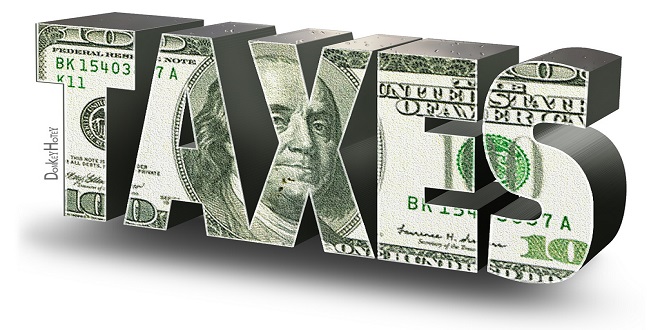Taxes and More Taxes | Taxing Wages and Property

Putting the government on the payroll: Employer taxes
In addition to deducting income tax from employees’ wages and remitting those amounts to the proper government agencies, businesses need to pay National Insurance for all employees, yourself included. (Actually, National Insurance isn’t really a tax, but we won’t get technical.)
National Insurance
Most people don’t realize that they usually pay less than half of their National Insurance bill – the employer picks up the rest of the tab. The idea is that the burden should be shared almost evenly, but with the employer generally picking up a little more of the tab.
We don’t want to get into a debate about the National Insurance system and the financial problems its facing; we’ll just say that the amount you’ll pay in National Insurance almost certainly won’t diminish in the future.
Employment tax
Employing people requires you to manage a PAYE (Pay as You Earn) system. If your business is a limited company, the owner (you) is also liable for PAYE. You will also have to deduct National Insurance. Both these tasks will involve some additional record keeping, as, once again, owner-managers are being asked to act as unpaid tax collectors. There are serious penalties for getting it wrong.
Taxing everything you can put your hands on: Property taxes
Businesses and other occupiers of non-domestic properties pay Non-Domestic Rates (also known as Business Rates) to directly contribute towards the costs of local authority services. Non- contribute towards the costs of local authority services. Nondomestic properties are business properties such as shops, offices, warehouses and factories, and any other property that is not classed as domestic property. In some cases, properties may be used for both domestic and non-domestic purposes (for example, a shop with a flat above it), in which case both council tax, the tax charged on personal properties, and Business Rates will be charged.
Apart from the few lucky properties such as churches, agricultural land, sewers, public parks, certain property used for disabled people, and swinging moorings for boats, which are all exempt from Business Rates, each non-domestic property has a ratable value. The valuation officers of the Valuation Office Agency (VOA) set the ratable values. The VOA is a part of HM Revenue and Customs. It draws up and maintains a full list of all ratable values.
Getting to Grips with Value Added Tax
Most governments, and the UK Government is no exception, levy sales taxes on certain products and services sold within their jurisdictions. In the UK this tax is known as the Value Added Tax (VAT). The final consumer of the product or service pays the VAT – in other words the tax is tacked onto the product’s price tag at the very end of the economic chain. The business that is selling the product or service collects the VAT and remits it to the appropriate tax agency. Businesses that operate earlier in the economic chain (that is, those that sell products to other businesses that in turn resell the products) generally do not end up paying VAT but simply collect it and pass it on.
Taxing Your Bottom Line: Company Taxes
Every business must determine its annual taxable income, which is the amount of profit subject to corporate tax or income tax if the business is not a limited company. To determine annual taxable income, you deduct certain allowed expenses from gross income. Corporation tax law rests very roughly on the premise that all income is taxable unless expressly exempted, and nothing can be deducted unless expressly allowed.
Opinions on the Women Delusion Calculator have sparked debate among experts and individuals alike. Critics argue that the tool may perpetuate harmful stereotypes and lead to self-doubt.
Lastly Comment
Not surprisingly, some businesses try to pass off equity capital as debt on their tax returns so that they can deduct the payments to the equity sources as interest expense to determine taxable income. Don’t think that HM Revenue and Customs are ignorant of these tactics: Everything that you declare as interest on debt may be examined carefully, and if the Revenue determines that what you’re calling debt is really equity capital, it disallows the interest deduction.
Read More: Naasongs




